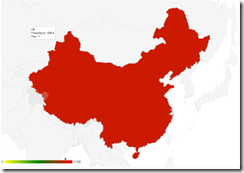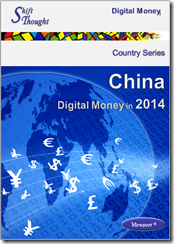After Alibaba successfully floated a record-breaking $25 billion IPO one of it’s first initiatives is consolidation of a number of its financial services initiative under an umbrella private bank set up in China. The business is to focus on serving the needs of small businesses. MSME business is a largely unserved and promising area, but how will large groups such as Alibaba balance innovation as they scale to address this segment?
While a lot of focus has been rightly given to the unbanked and the under-banked, I believe not enough has been done to address the needs of businesses that have are growing increasingly smaller and have distinctive requirements. When Square brought out the Square reader in 2011 it opened the floodgates to a whole new set of MPOS services and rapidly commoditised that market. Yet businesses such as my own struggle to effectively take small payments in multiple currencies without the help of a massive organisation behind us with dedicated functions for this. Alipay spotted this opportunity and grew very rapidly, supporting such businesses in acquiring payments and managing the complexities that innovative entrepreneurs in China faced.
In China there is now a new trend towards the formation of private banks. Alibaba has recently received a license from CBRC, as one of three recently established private banks. This development stems from the Communist Party of China pledge in November 2013 to increase the competition in the Chinese banking sector.
Now Alibaba’s Ant Financial Services Group (rebranded this month from Ant Small and Micro Financial Services Company) will bring together it’s diverse financial services businesses, focussed on the huge opportunity from businesses that are growing progressively small. These include:
- Alipay, their main payments service provider
- Yu’e Bao, a money market fund
- Zhao Cai Bao, a financial services platform
- Ant Micro, a micro-loan provider
- Huarui: Shanghai-based newly formed private bank addressed as MyBank but English name still pending
Alibaba helps companies in the US find and use the services of really small merchants in China, and caters to their needs for payments, escrow services, P2P lending and more.
Along with 249 other businesses (from across sectors and including China Mobile), Alipay received a license as a payments service provider. It has initially focussed on adding mobile and offline channels to it’s popular Alipay online digital wallet. Now it is pulling ahead of the pack with it’s own bank MYBank, and consolidation of six different businesses that will together focus on the MSME Opportunity.
To my mind this raises a number of questions that we answer in our Digital Money in China and other recent reports:
- Will Alibaba succeed to keeping the dynamism that allowed it to grow, as it grows into such a large business, and how will it cope with the responsibilities of being a bank and still adapting and growing to meet the unique requirements of MSMEs?
- So far China had one private bank, China Minsheng Bank. Alibaba’s main competitor Tencent has also set up a banke, Webank. Which of the other 248+ recently licensed PSPs are likely to follow suit, and how will being a bank help or hinder them?
- As Chinese companies increasingly go international, how can global brands be protected? In Europe MyBank has just been investing heavily in setting itself up as a pan-European initiative. MYBank is not yet finalised as the English name that will be used by Alibaba, but are there sufficient deterrents to prevent it from using this existing brand name? I see this as yet another example of how consumers may be confused as they seek to use services from increasingly global players.
- Where does this leave PayPal as it leaves the protection of EBay and must compete with the likes of Alibaba and Tencent?
- And most important of all, perhaps – are the needs of increasingly small businesses best met by increasingly large conglomerates, rather than community co-ops and MFI institutions as in the past?
Will Open-to-SMEs continue to be Alibaba’s Open Sesame?
For more about developments in China see: Disruptions in Digital Payments in China - What does this mean for you?
Contact us at contact@shiftthought.com for details on our Digital Money in China Viewport and other recent research.



